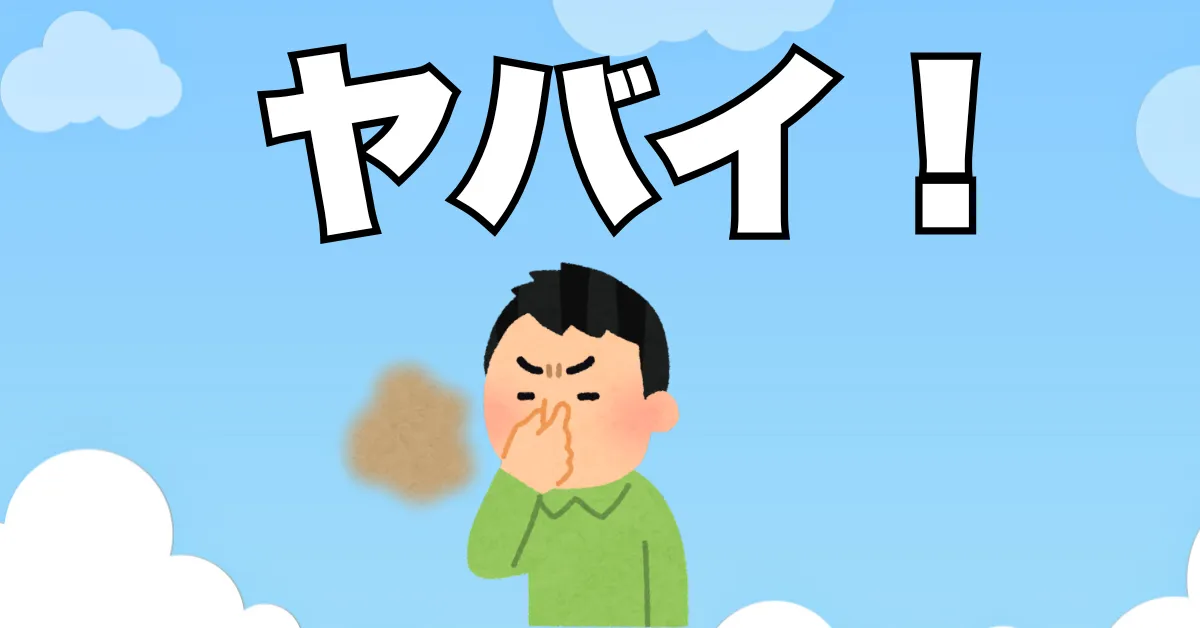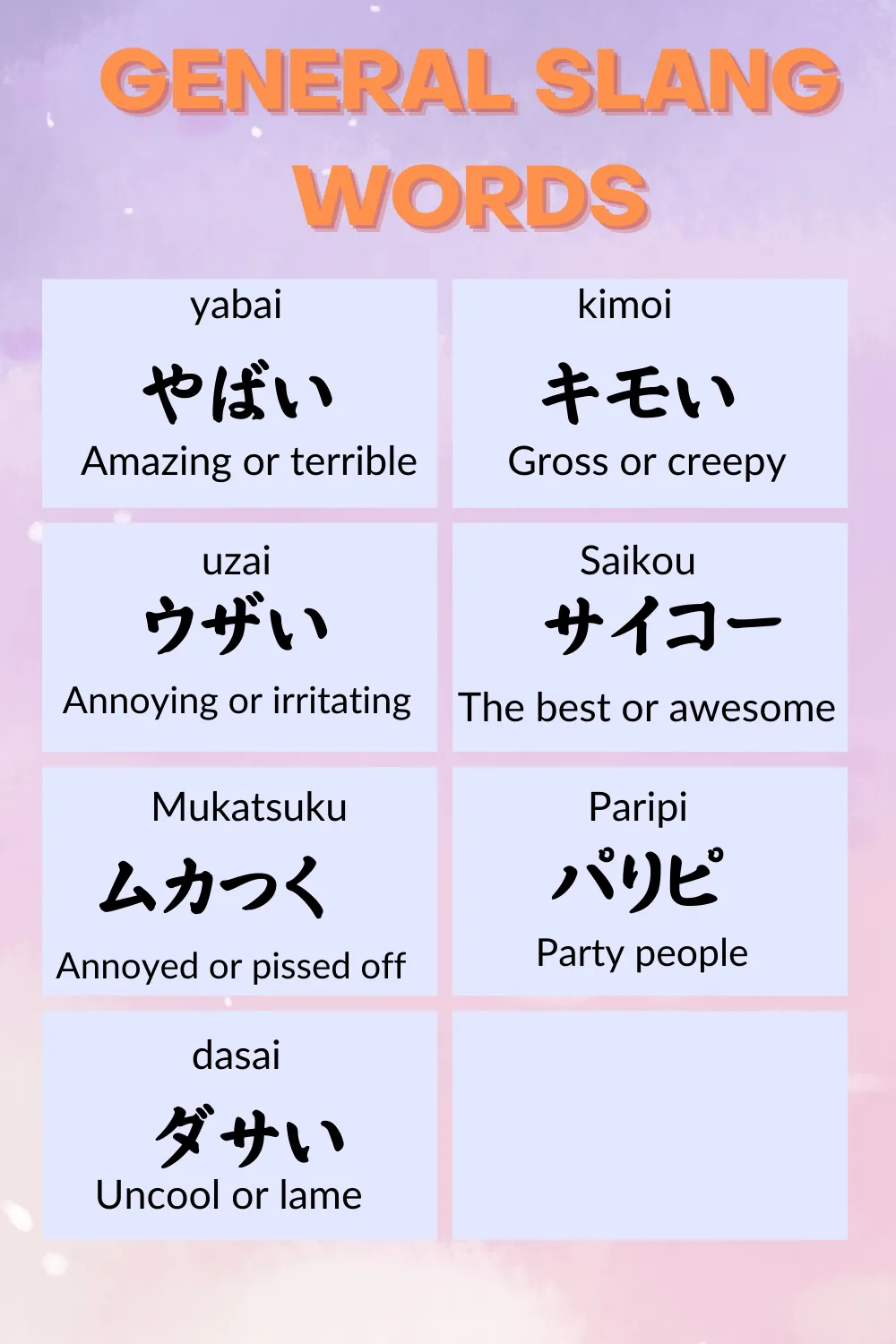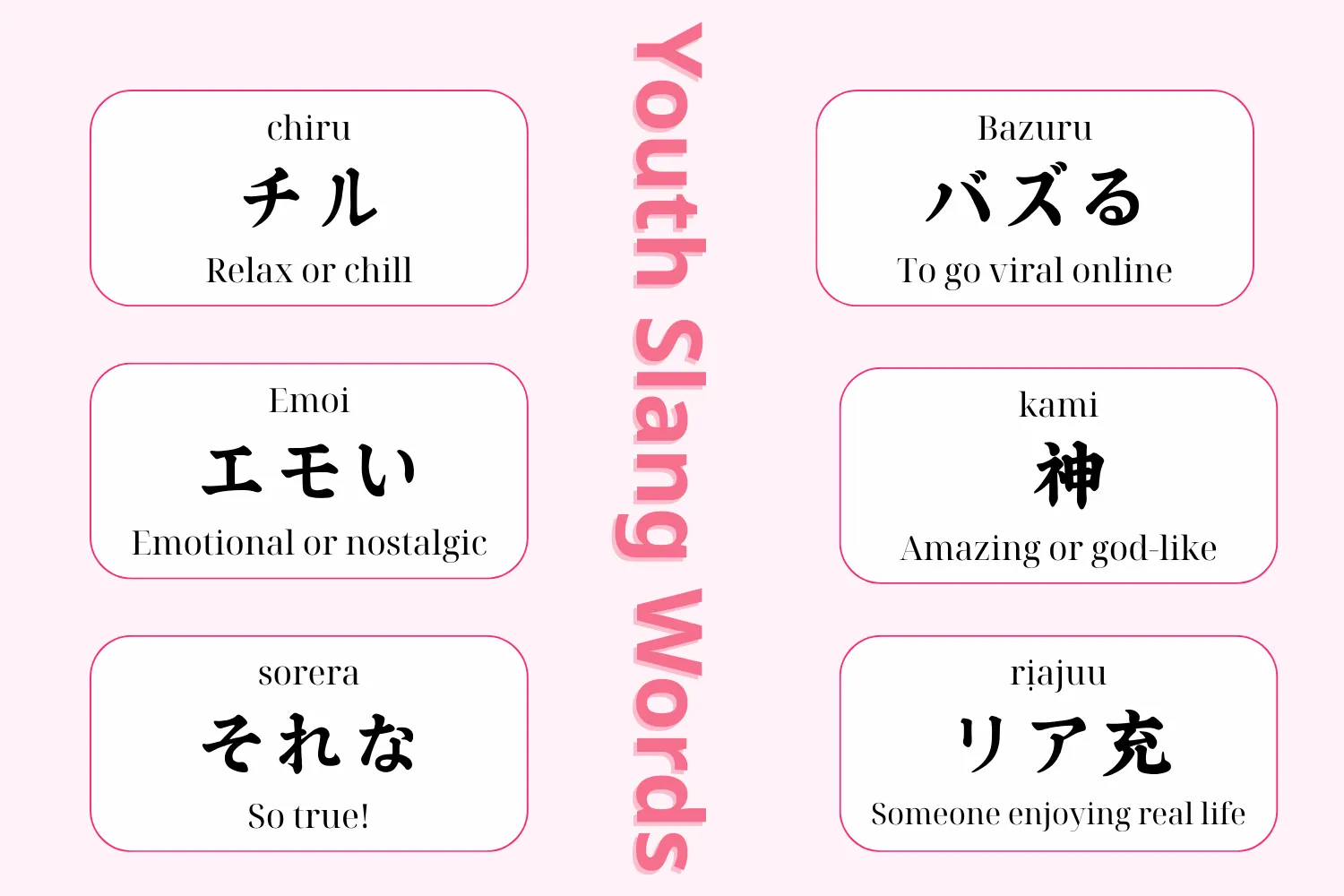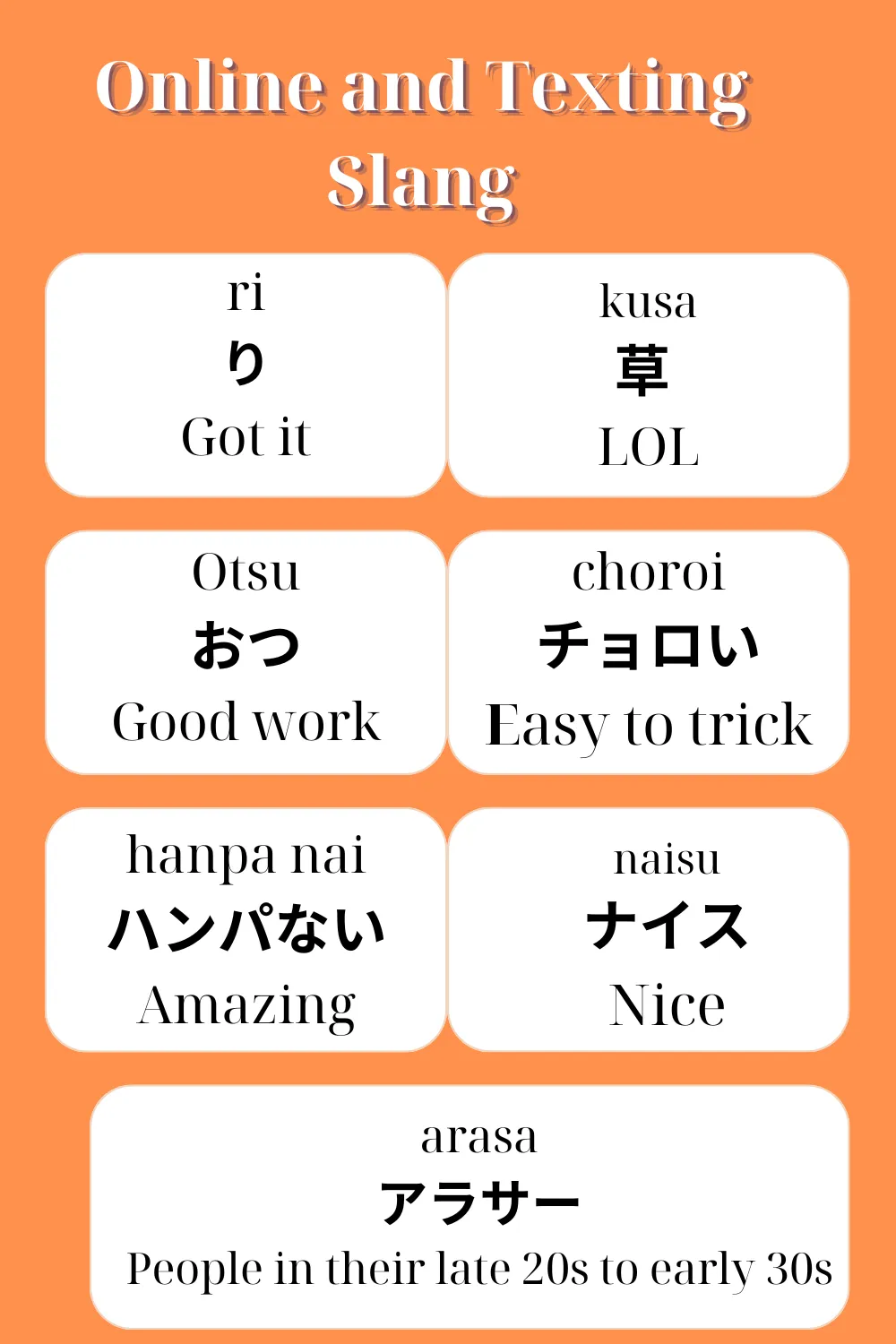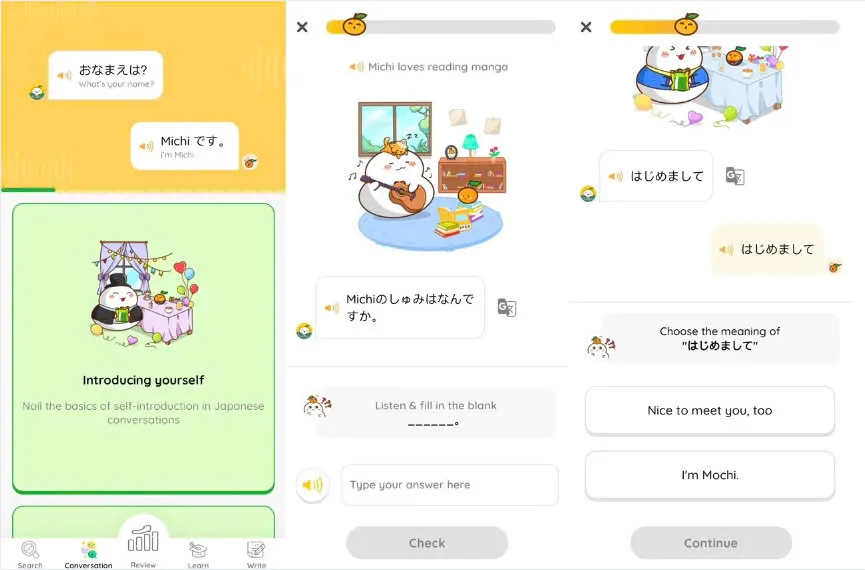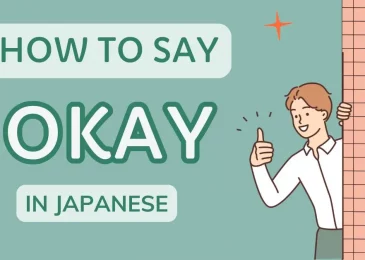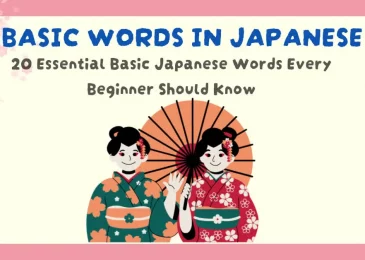What Are Slangs in Japanese?
Slangs in Japanese refer to informal, playful, or trendy expressions used in casual conversations. These words often evolve from cultural trends, internet culture, and generational influences, making them a fun and dynamic aspect of the language.
Unlike formal Japanese, slang adds personality and creativity to communication, helping speakers sound more relatable and expressive.
For instance, Yabai can mean “amazing” or “terrible,” depending on the tone, showcasing how flexible and versatile slangs in Japanese are.
Why Learn Slangs in Japanese?
- Makes Your Conversations More Natural
Using slang makes you sound less like a textbook learner and more like a native speaker. Casual words like Yabai replace formal terms, helping you blend into everyday conversations effortlessly.
- Provides Insight Into Modern Japan
Slang in Japanese reflects current cultural trends, fashion, and entertainment. Terms like バズる (Bazuru), meaning “to go viral,” highlight the influence of internet culture on language.
- Helps You Connect With Others
Slang in Japanese is commonly used in jokes, memes, and social media, making it essential for casual chats. Words like それな (Sorena), meaning “Exactly!” can make your conversations more engaging and relatable.
20+ Popular Slang Words in Japanese and Their Meanings
- General Slang Words
- ヤバい (Yabai)
Meaning: “Amazing,” “terrible,” or “dangerous,” depending on context.
Example: “この景色、ヤバい!” (Kono keshiki, yabai!) – “This view is amazing!”
- キモい (Kimoi)
Meaning: Gross or creepy.
Example: “あの虫、キモい!” (Ano mushi, kimoi!) – “That bug is gross!”
- ウザい (Uzai)
Meaning: Annoying or irritating.
Example: “彼の話はウザい。” (Kare no hanashi wa uzai.) – “His story is annoying.”
- サイコー (Saikou)
Meaning: The best or awesome.
Example: “この映画はサイコーだ!” (Kono eiga wa saikou da!) – “This movie is awesome!”
- ムカつく (Mukatsuku)
Meaning: Annoyed or pissed off.
Example: “本当にムカつく!” (Hontou ni mukatsuku!) – “That’s so annoying!”
- パリピ (Paripi)
Meaning: Party people or social butterfly.
Example: “彼女はパリピだね。” (Kanojo wa paripi da ne.) – “She’s such a party person.”
- ダサい (Dasai)
Meaning: Uncool or lame.
Example: “その服、ダサいよ。” (Sono fuku, dasai yo.) – “Those clothes are lame.”
Youth Slang Words
- チル (Chiru)
Meaning: Relax or chill (from English).
Example: “今日チルしよう。” (Kyou chiru shiyou.) – “Let’s chill today.”
- バズる (Bazuru)
Meaning: To go viral online.
Example: “この写真はバズった。” (Kono shashin wa bazutta.) – “This photo went viral.”
- エモい (Emoi)
Meaning: Emotional or nostalgic.
Example: “この曲はエモい。” (Kono kyoku wa emoi.) – “This song is emotional.”
- 神 (Kami)
Meaning: Amazing or god-like.
Example: “このサービスは神だ!” (Kono saabisu wa kami da!) – “This service is amazing!”
- それな (Sorena)
Meaning: “So true!” or “Exactly!”
Example: “それな!私もそう思う。” (Sorena! Watashi mo sou omou.) – “Exactly! I think so too.”
- リア充 (Riajuu)
Meaning: Someone enjoying real life.
Example: “彼はリア充すぎる!” (Kare wa riajuu sugiru!) – “He’s living the perfect life!”
- Online and Texting Slang
- り (Ri)
Meaning: Abbreviation of 了解 (Ryokai), meaning “Got it.”
Example: “明日5時に会おう。り!” (Ashita goji ni aou. Ri!) – “Let’s meet at 5 tomorrow. Got it!”
- 草 (Kusa)
Meaning: LOL, from w (used for “laugh”) resembling grass.
Example: “この動画、草。” (Kono douga、 kusa.) – “This video is so funny.”
- おつ (Otsu)
Meaning: Short for お疲れ様 (Otsukaresama), meaning “Good work” or “Thanks.”
Example: “今日はおつ!” (Kyou wa otsu!) – “Good work today!”
- チョロい (Choroi)
Meaning: Easy to trick or fool.
Example: “あの人はチョロいから、すぐにだまされる。” (Ano hito wa choroi kara, sugu ni damasareru.) – “That person is easy to trick.”
- ハンパない (Hanpa nai)
Meaning: Extraordinary, amazing, or incredible.
Example: “そのパフォーマンスはハンパない。” (Sono pafoomansu wa hanpa nai.) – “That performance was incredible.”
- アラサー (Arasa)
Meaning: People in their late 20s to early 30s.
Example: “アラサー世代の悩み。” (Arasa sedai no nayami.) – “The struggles of people in their late 20s to early 30s.”
- ナイス (Naisu) – Nice, used as a compliment (borrowed from English).
Example: “ナイスプレー!” (Naisu puree!) – “Nice play!”
How to Learn and Use Slang in Japanese
1. Watch Japanese Media: Dramas, anime, and YouTube are great ways to hear slang in Japanese in action.
2. Follow Social Media Trends: Platforms like TikTok and Instagram showcase slang in Japanese used by young people in Japan.
3. Practice with Language Apps:
Apps like MochiKanji make it easy to practice not just slang in Japanese but also kanji and vocabulary in an interactive way. MochiKanji includes example sentences with slang and pronunciation tools, helping you sound natural when speaking.
Cultural Tips for Using Slang in Japanese
- When to use slang: It’s best for casual chats with friends. Avoid it in formal or business settings.
- Adapt to your audience: Some slang can feel too informal or trendy for older people.
Conclusion
Learning slang in Japanese is a fun way to make your language skills stand out. With words like Yabai or Bazuru, you can understand modern trends and communicate more naturally. Apps like MochiKanji can be your ultimate tool for mastering slang in Japanese and kanji together.

